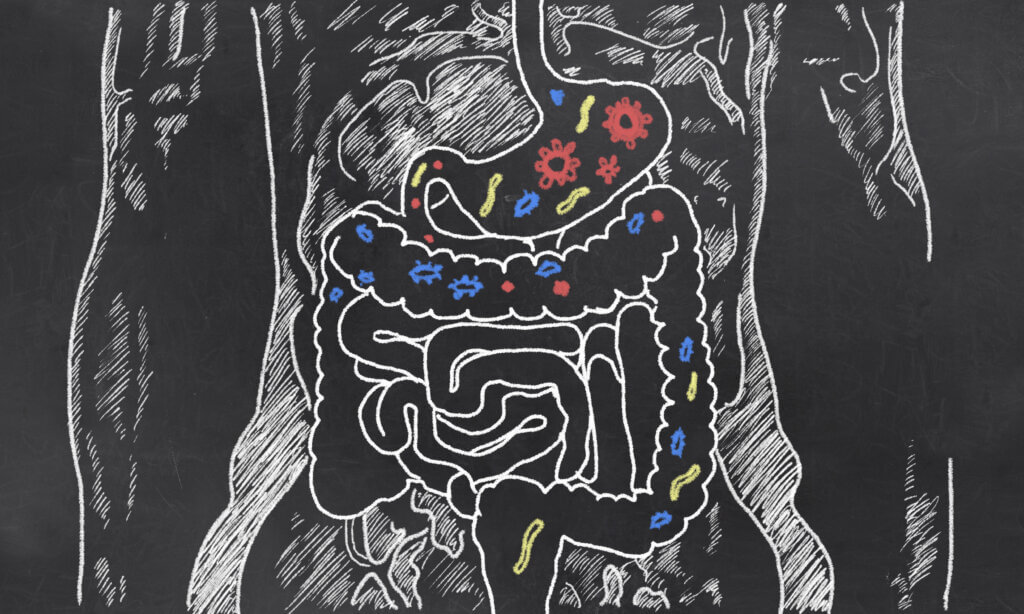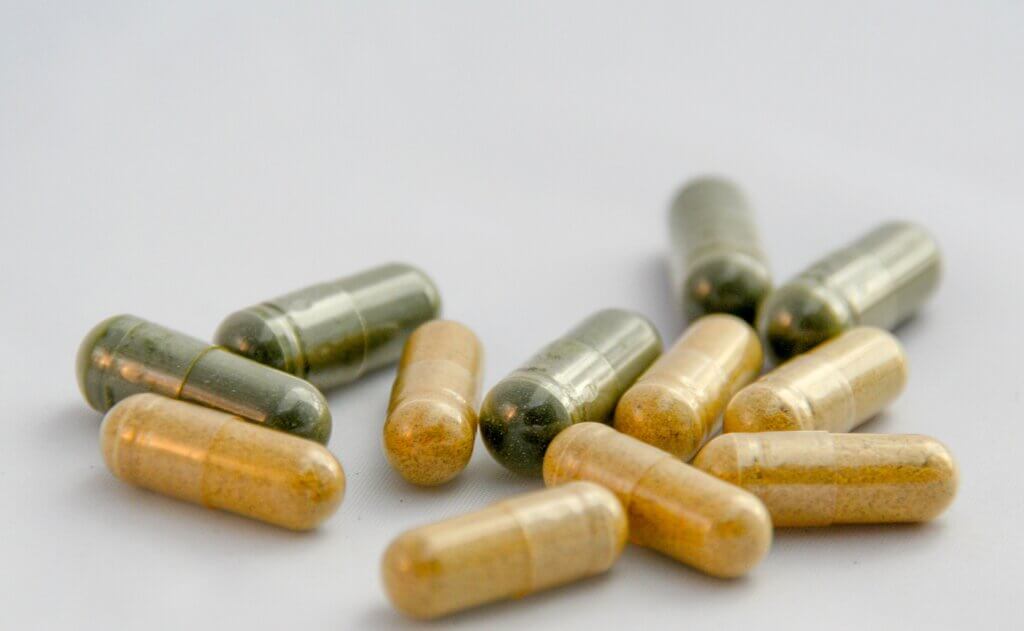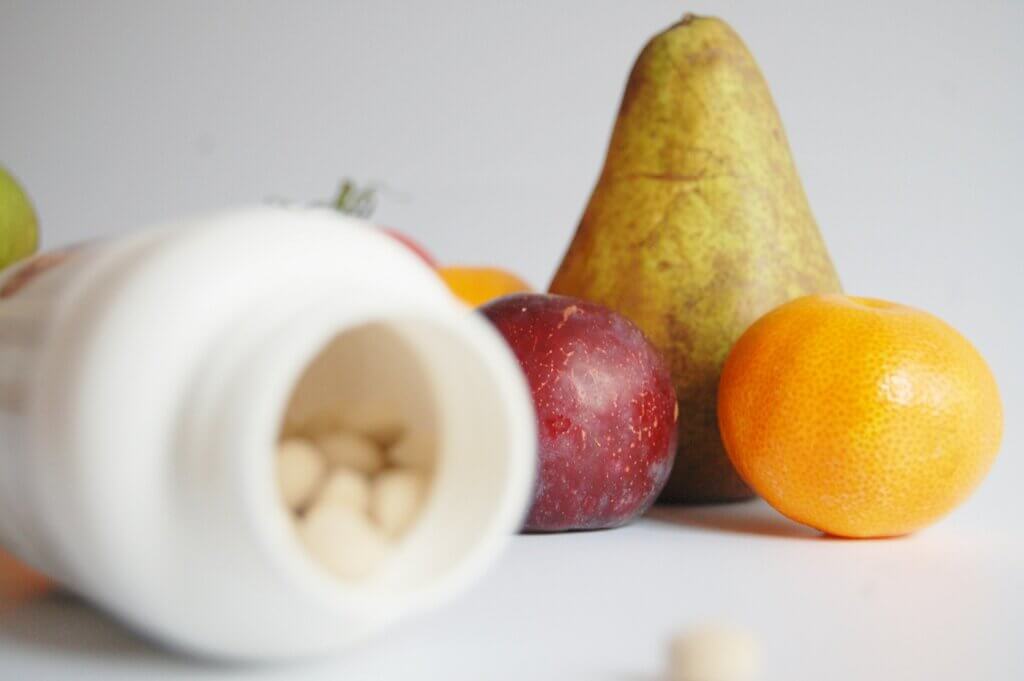Probiotics for kidneys? Are they good? Are they bad? Do they actually help with anything? Or are they just another pill or supplement added in desperation to keep the kidneys stronger longer?
Disclosure: This post is sponsored by Kibow Biotech, the producer of Renadyl, a probiotic for kidney health. As always, all opinions are my own.

My answer – probiotics for kidneys are something we should definitely consider with kidney health. Why? Because gut health is a big part of supporting optimal renal function. To quote, one of my favorite scientific reviews on the topic, “The recent explosion of knowledge on the metabolic potential of gut microbiome…has led the nephrologist to refocus on the gut as a potential cause of CKD-related complications…(1)” I’ll add here – this means not just the nephrologist should be looking at the gut-kidney connection, but all nephrology professionals and every patient looking to support their kidney health.
“The recent explosion of knowledge on the metabolic potential of gut microbiome…has led the nephrologist to refocus on the gut as a potential cause of CKD-related complications…(1)”
The Gut Microbiome, Kidney Disease, and Targeted Intervention. Ramezani A and Raj S. JASN April 2014, 25(4) 657-670.
But back to the main topic: Probiotics and kidneys. The research is pretty solid that people with kidney disease have an imbalance in their gut microbiome (that’s the make-up of the good and bad bacteria in your gut) (2). Probiotics may be helpful to support kidney health BUT not all probiotics are created equal. Different probiotics do different things and some probiotics do nothing at all.
So let me save you some time and money and outline how and what probiotics may be helpful if you’re working to support your kidney health. I’ll do the best to simplify here. Seriously, when I read articles on this topic they often have over 150 citations. So, yeah, lots to say, but I’ll keep to the basics.
Uremic toxins damage your gut and kidneys!
Let’s start with uremic toxins. Probiotics may be helpful in reducing uremic toxins generated in your gut (3, 4). (Side note: there are LOTS of references to attach here but I linked just two excellent papers in the literature, more below).
You may or may not be familiar with the word “uremia.” It’s been around since 1847 and a big deal with kidney disease. Uremia is more or less defined as “urine in the blood.”(5). Sounds gross, right?
Healthy working kidneys normally filter out something called uremic toxins, thus the word “urine.” Urea is one of the most well-known uremic toxins but there are many others. When the kidneys aren’t working at full capacity some uremic toxins (which may eventually may cause uremia) stay in the blood and can damage the kidneys, heart, and bones (6).
Protein is the precursor of uremic toxins. Thus, when you eat protein some of it gets broken down into these uremic toxins. There are many uremic toxins, but I wrote about two of these (P-cresol and indoles) in my recent post about kidney care and the gut. Uremic toxins normally are absorbed through the gut lining into the blood stream and then processed out through the kidneys.
What some scientists have found is that protein is not the only source of uremic toxins. Bacteria in the gut can produce uremic toxins. Bacteria can also “eat” uremic toxins. This is why the gut in kidney disease is so very important. The toxic load that is part of the progression of kidney disease can be modulated by the bacteria in the gut both for good and ill.
“Mr. Bacteria, please eat some uremic toxins!”
“Give me some of that uremic-toxin eating bacteria!” you say. Yes, that is possible! Let me tell you what that really means as far as what you do. Also consider that we are not just concerned about a strain of bacteria but also must always consider overall gut health because of how it impacts inflammation.
Gut health and kidney disease is not just about uremic toxins. There’s a lot more. There hasn’t been one huge study, perfectly randomized, placebo-controlled study that shows the relationship between gut health and CKD progression. But there’s been plenty of smaller studies focusing on correcting gut bacterial balance with reported findings of delaying kidney progression, reducing inflammation, and improving iron status (7).
There is also some interesting data showing that probiotics may help improve the health, strength, and overall condition of the gut barrier (8). The gut barrier is an absolutely essential point to understand when looking at the connection between gut health and inflammation.

The gut barrier is pretty important since it houses 70% or so of our immune system (think the big factory of the immune system). It also is supposed to be a semi-permeable barrier – meaning it lets some little things through (like important nutrients) and some big things out (like bacteria and endotoxins). If the gut barrier becomes more permeable, aka “leaky,” then unwelcome things pass into the blood that shouldn’t.
Why does kidney disease matter to your gut barrier and vice versa? The research shows that some strains of our gut bacteria break down the extra circulating urea, generated as kidneys fail, into ammonia and ammonium hydroxide. This is bad because essentially the ammonia and ammonium cause a cascade of reactions that “loosen” the gut’s tight membrane. This means it becomes far less selective about what what crosses it. I like to compare it to a coffee filter. A good coffee filter only gives you, well, coffee – no grounds (yuk!). A leaky filter or a poor functioning coffee pot, deposits nasty grounds in your perfect coffee.
When your gut’s epithelial tight junctions start to loosen up, some ugly
things that should stay in your gut and be metabolized by bacteria begin to
enter the bloodstream.
Things like endotoxins (toxins released when bacteria die) or bacteria themselves start passing through the gut barrier. These unwelcome visitors cause inflammation and ultimately damage to the kidneys (9).
Does it matter which probiotic I use?

Multiple probiotics have been studied with a specific focus on kidney disease. Bacillus pasteurii, Sporlac, Lactobacillus acidophilus, Escherichia coli-DH5, and others (10). There are many researchers in a variety of universities that study probiotics and prebiotics with kidney disease. Kibow Biotech, who produces Renadyl, is the only company that specifically studied probiotics for kidneys. Their probiotic consists of (S thermophilus-KB19, L acidophilus-KB27, and B longum-KB3 in a dosage of about 90 billion organisms. Dr. Ranganathan, the founder of Kibow Biotech, and one of the primary researchers has been studying this formula for 20+ years.
Current studies with Renadyl show that especially in later stages of CKD (III and IV) that uremic toxins were able to be broken down and excreted with help of their probiotic strains. Plus, remember I just mentioned bacterial production of ammonia and ammonium hydroxide from breaking down uremic toxins? There is some interesting data that Renadyl can help reduce that as well (11). Each of the different strains of bacteria has been chosen for a specific purpose. For example, per their report S. thermophils-KB19 breaks down urea, uric acid and creatinine, while B. longum-KB31 helps reduce levels of protein bound uremic toxins like p-cresol and indoles (12).

So…probiotics for kidneys… do they support kidney health?
So will it help? The research is not absolutely conclusive on probiotics and slowing kidney disease progression. Though there have been some studies showing a stabilization of eGFR in patients taking specific types of probiotics (13, 14). But, I find the research and studies compelling as far as potential for probiotics supporting kidney health.
In addition, I absolutely believe gut health and kidney care are intertwined so it makes sense to put a renal-specific probiotic on board to support the gut and thus the kidneys as much as possible. I frequently recommend Renadyl for my clients. While my clients work to switch to a plant-based diet (which by the way feeds the good bacteria) I think Renadyl is a great support for gut health and thus kidney health.
One other important side-note here. Probiotics are not like seeds Some people think that is you take a bunch of probiotics, you will have a permanent increase of these bacteria in your gut – and get to a new level of gut bacteria Zen. This not the case.
Your Microbiome Army and its Probiotic Reinforcements

Probiotics are more like reserve soldiers for an army. They come in, strengthen the army to fight the battle, and then leave. The power is that as you strengthen the army, you support the army to get stronger and wage a better fight. This is why strain matters because you have to fight different enemies. Not all bacteria are interested in “eating” uremic toxins. So if you just consume any old probiotic or don’t really get enough bacterial strains for long enough, your “microbiome army” isn’t really helped.
Strain-specific therapy for kidney disease is such an important part of therapy that researchers focus on just sorting through which bacteria are helpful for what. For example, Probiotic Advisor, run by Dr. Jason Hawrelak, is a database/website that completely focuses on guiding clinicians on strain specific probiotic therapy. It is not just kidney disease where strain matters. There are a lot conditions where it matters (enough for an enormous database to be generated).
5 ways I Help My Clients Support their Kidneys Through Gut Health
Okay, so now you know balancing your gut is important and probiotics for kidneys make a difference. The gut, the microbiome, and probiotics are involved with relieving uremic toxins, decreasing inflammation, and helping with better nutrient absorption.

Supporting a healthy gut is not just about getting the right probiotics for kidneys. That is a big piece for sure. You also need to support your army – meaning feed them and not send extra stress their way. For my clients with kidney disease I really like to talk about a few gut healthy strategies.
1. Yes, get a good probiotic. You need to consider quantity, quality, and length of time of administration (aka you need enough reinforcements for long enough to make a difference). If my client has stage 3 or 4 kidney disease, we definitely use at least 90 days of Renadyl. I also like to add in spore-based probiotics as they have some specific functions with healing the gut lining (which, from what I just wrote can be a problem in kidney disease) (15).
2. Use some prebiotics. Prebiotics are the food of the microbiota. You can get this in the form of food, like fresh fruits, vegetables, and whole grains. In general, a diet that is full of more fresh foods and more fiber is going to give you the best results. Plant-based diets are powerful for people with kidney disease any ways, good to work with a renal dietitian to make this a new habit. More info coming soon on prebiotics so I won’t belabor the point here. You can also use a product like Kibow Fortis®.
3. Cut back on salt, processed food, and preservatives in your diet. Preservatives are not kind to your gut or your kidneys. The optimal diet for kidney care is very personalized so I advocate for working with a renal dietitian initially. Regardless, pretty much across the board, it is best to limit preservatives for optimal kidney care.
4. If you’re on a PPI medication for GERD (omeprazole or lansoprazole) talk with your doctor about long-term plan with this medication. High stomach acid and low stomach acid often have similar symptoms. Low stomach acid is more common than high stomach acid and can be a starting place for disrupting your microbiome. (Plus some interesting research on PPIs not being so great for kidney disease anyways). Please, do not abruptly stop a PPI medication though. Always consult with your doctor before stopping or starting any medication. Abruptly stopping PPIs can cause significant rebound hypersecretion – which is painful to say the least.
5. Fifth, if you need to take an antibiotic, make sure that you ALWAYS take a probiotic as well. Antibiotics are frequently used in conventional medicine. However, they kill both bacteria and good bacteria. More information on antibiotic and probiotic therapy from one my colleagues here.
Probiotics for kidneys can be a powerful allies

Kidney health and the gut microbiome are intertwined. Whether dealing with any stage of chronic kidney disease or any other health condition, the gut is of paramount importance. The compounding research shows uremic toxins impact the gut and kidney disease. This is not a lost battle. You can take steps to start modulating this cycle in your kidney care plan. Decreasing uremic toxins through increased fruit and vegetable intake, decreased protein intake, and use of probiotics such as Renadyl can be helpful. Information in this post should not replace a discussion with your doctor and care team. Before starting any new supplement and to discuss further treatment information for gut health, please contact your doctor.
Has your doctor talked with you about how your gut health impacts your kidney health? Comment below to let us know what you have learned that has helped you!
Interested in learning more about probiotics and kidney care? Email to info@kibowbiotech.com to get more information and to get a $15 discount code on first time order only
Want to learn more about how gut health and kidney disease are related?


Pingback: Ketoanalogues and Kidney Disease - Kidney RD
Thank you for the information. My husband has just been diagnosed with stage 3 kidney disease. This came out of the blue, so I am scrambling for all info I can find to help keep him from progressing. We have an apt coming up with a nephrologist, and I will take info on probiotics and vitamins with questions to him.
Thank you!
Hi Mary – Glad you are being so proactive! The best thing you can do for yourself is become informed!
Pingback: Renadyl™: What You Need to Know About this Kidney Care Supplement - Kidney RD
Pingback: Prebiotics: A Kidney Care Supplement and Food You’ll Want to Remember! - Kidney RD
I have been on immuno suppressants for a year since my kidney transplant and I have severe diarrhea. What is the best probiotic for it? Thanks
Hi Kye,
We recommend always talking with your transplant team because this is an emerging area of research, and there are some unknowns regarding safety. Fortunately, studies are being conducted as we speak. In the meantime, you might consider eating a small portion of fermented foods daily, like yogurt, sauerkraut, kimchi, or miso. They can be a bit small but just a couple of tablespoons are enough to provide beneficial bacteria. Also, prebiotic fiber helps beneficial bacteria grow- so a diet rich in fiber or considering a prebiotic fiber supplement might also help! If you’d like more support with this, consider booking a complimentary discovery call.